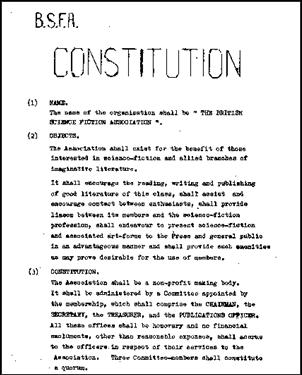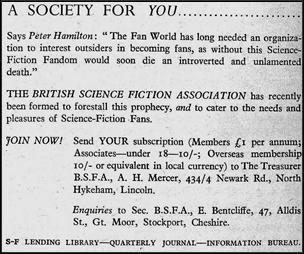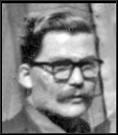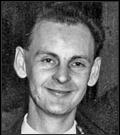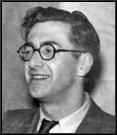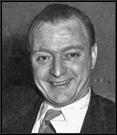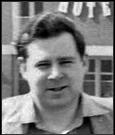
‘The Time Has Come’
Captain Ken tries to organise fandom…
Following the success of his Operation Fantast trading bureau, (Captain) Ken Slater issued a circular in August 1948, titled ‘The Time Has Come’, pushing the idea of a national SF fan organisation. He proposed that there should be a series of levels, from single fans through towns or area groups, county representatives, etc., culminating in a Council. Each fan would register his abilities and resources with the next higher level and orders would be transmitted to him through this chain. As someone later commented: “all it needed was a uniform and a Field-Marshall”.
The organisation that resulted was the Science Fantasy Society, which at its height attracted some 150 members. But it only lasted three years.
“What’s
wrong
with Fandom?”
asked
Eric Jones, chairman of the
Cheltenham SF Circle
, in April
1956 
In his fanzine Sidereal Eric said; “Something seems to be wrong with recent conventions. The graph definitely shows a downward trend, culminating in a negative attendance figure next year! Why is this? What’s wrong with fandom for it to be so off-hand where conventions are concerned?”
Fandom continued in its anarchic way until Peter
Mabey produced this chart after the 1956
convention. 
A year later only 30 people attended Cytricon III. What was to be done?
‘Don’t Just Sit There…’
In
December 1957, long-time London fan Vince Clarke
put out a plea in his fanzine
Zymic,
suggesting it was time to rejuvenate British
fandom …


Response was overwhelming. Vince said, "I appear to havestruck a spark and started a conflagration. The case for Doing Something about the apathetic state of British fandom has certainly been put before, and I'm surprised that the response has been so great; I feel like a man who has casually ushed a button and seen the ICBM take off with a W hoosh!"






